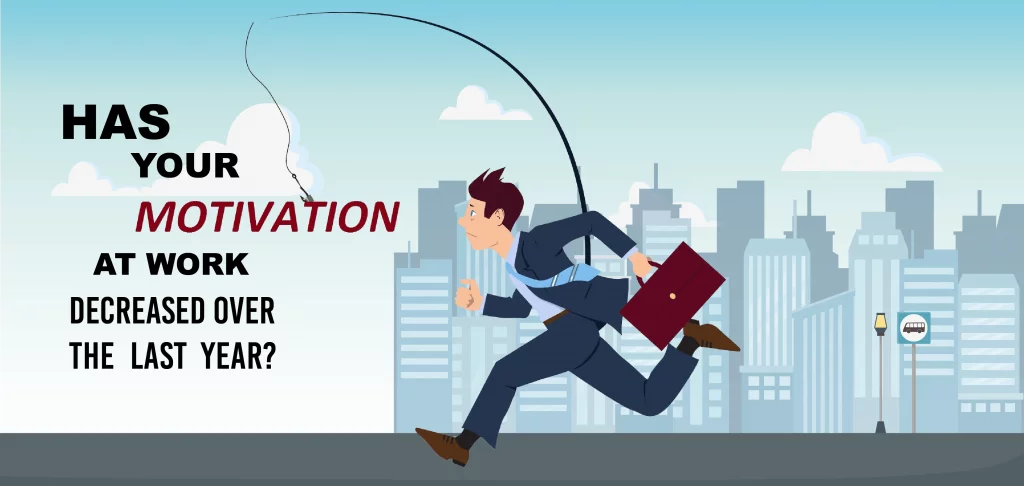When you’ve been working hard to meet a deadline or fix a problem, it’s normal to feel fatigued. You may push through, knowing that before long, things will calm down a bit and you can recover. However, if you’ve been pushing hard for a while, you may be feeling more than fatigued; you may be feeling burned out. Burnout is different to just feeling tired. When you’re tired, you can rest a bit and get back to it. You might even get a second wind. Burnout, on the other hand, only gets worse unless you do something about it.
Professionals are especially susceptible to burnout. Doctors, lawyers, and executives often work under time pressure for big stakes. Top performers don’t just come to work and go through the motions; they go all in. That can produce spectacular results, but it can also be hard to sustain. The normal rhythm of life is to tackle a big challenge, then rest and repeat. When you’re constantly tackling a big challenge, not only do you start to wear out, you start to wonder what you’re doing there in the first place. Losing touch with your passion and motivation is a huge warning sign. Other challenges can be solved, but if you lose your motivation, you can’t even get out of bed.
Exhaustion is the first sign of burnout. It’s normal to be tired at the end of the day or the end of the week. Our batteries run down and we need to recharge. Tiredness becomes a sign of burnout when it goes on and on. When you wake up in the morning, you’re still tired. You can’t get out of bed. You don’t really care about anything you’re supposed to do that day. Burnout isn’t exactly the same as depression, but the two often overlap.
Another sign of burnout is when you become cynical. This is another area where depression and burnout overlap. You may become irritable and short-tempered. You may become overly critical of everyone, including your colleagues, friends, family, and clients. You may attribute sinister motives to innocuous actions. You may wonder why you bother to work so hard. A sure sign of cynicism is when you have more arguments with the people around you.
A third sign of burnout is that you’re not as effective as you used to be. You might even be working harder and putting in more hours, but somehow, you don’t get as much done. The farther you go down this path, the more your cognitive efficiency suffers. You feel chronically stressed, which affects your creativity and judgment.
One thing you may notice about these three signs of burnout is that they only dig you into a deeper hole. You get more exhausted, you alienate the people you rely on, and you don’t get as much done. All these only increase your problems, increase your stress, and make you feel more burned out. It’s not uncommon for people to deal with burnout by using drugs or alcohol, either to help them relax or to help them power through a heavy workload. This self-medication can become a habit or even an addiction.
Burnout is typically the result of years demanding work. Perversely, it often happens to those who are most passionate about their jobs. Since burnout is the result of years of accumulated stress, it’s not so easy to get rid of. If you were merely fatigued, cutting back on your hours a bit or taking a nice holiday with the family might recharge your batteries and allow you to come back to work with fresh enthusiasm. However, burnout is more complicated and it may take more work to overcome. Often, it requires re-examining your priorities and making some significant life changes.
If you are burned out, meaning you’ve been experiencing exhaustion, depression, cynicism, and lagging productivity for a while, the first thing to do is take a step back and see what’s going on. Trying to keep going at that point will only make it worse. At the very least, consider talking to a therapist. Tell her what’s been going on, how you’ve been feeling, and how you’ve been coping.
If you’re ready for more serious measures, consider our executive burnout recovery program. This is a five-day intensive program that will give you some time away from work and help you relax in a beautiful location. It will also help you uncover the root causes of your burnout and help you make cognitive and lifestyle changes that will get you back on track and help prevent burnout in the future.
This is an integrated mind-body wellness program that includes therapy, life coaching, stress management, fitness, delicious healthy meals, and luxury accomodations. This is a personalized program that addresses your specific situation. You will meet one on one with a therapist and use burnout-focused cognitive behavioural therapy to address the cognitive distortions that led to burnout. The program also includes yoga and meditation, personal fitness training, tension-releasing exercise, floatation therapy, work-life balance assessments, neuro-linguistic programming sessions, or NLP, and massage.
Like the book says, what got you here won’t get you there. Many high achievers are reluctant to change their ways because they have worked well for them in the past. Perfectionism and working long hours at the expense of your health and relationships can get you ahead, but it’s not sustainable. Taking a little time to revitalize your approach to work and life can make you both happier and more successful.
If you are feeling burned out, The Dawn Medical Rehab and Wellness center can help. We are one of Thailand’s most respected addiction treatment and wellness centers. We use cutting-edge treatment modalities, including TMS and CBT to provide personalized care to treat addiction, depression, anxiety, bipolar disorder, personality disorders, PTSD, and executive burnout. See our contact page to reach us by phone or email.
Related Posts
 Burnout – when your professional duties leave you mentally frazzled
Most people have dealt with workdays that were so long and stressful that they would come home too tired to do anything. Rest usually helps, but if this fatigue lasts...
Burnout – when your professional duties leave you mentally frazzled
Most people have dealt with workdays that were so long and stressful that they would come home too tired to do anything. Rest usually helps, but if this fatigue lasts...
 Overcoming Burnout: Causes, Signs, Symptoms & How to Fight it
What happens when you take on more than you can mentally and physically cope with? Maybe you’re aiming for a promotion and, despite all your hard work, you’re starting to...
Overcoming Burnout: Causes, Signs, Symptoms & How to Fight it
What happens when you take on more than you can mentally and physically cope with? Maybe you’re aiming for a promotion and, despite all your hard work, you’re starting to...
 Don’t Let a Hot Career Burn You Out
If you’re feeling like your career is throwing your life out of balance, professional burnout may be to blame. Professional burnout can be a difficult issue to tackle. Limited...
Don’t Let a Hot Career Burn You Out
If you’re feeling like your career is throwing your life out of balance, professional burnout may be to blame. Professional burnout can be a difficult issue to tackle. Limited...
 Are You Experiencing Job Burnout & Emotional Exhaustion? Take Our Burnout Syndrome Test
The world of business has always been competitive and demanding, with consistent demands for both speed and quality coming from all sides. Those who consider themselves to be hard workers...
Are You Experiencing Job Burnout & Emotional Exhaustion? Take Our Burnout Syndrome Test
The world of business has always been competitive and demanding, with consistent demands for both speed and quality coming from all sides. Those who consider themselves to be hard workers...





